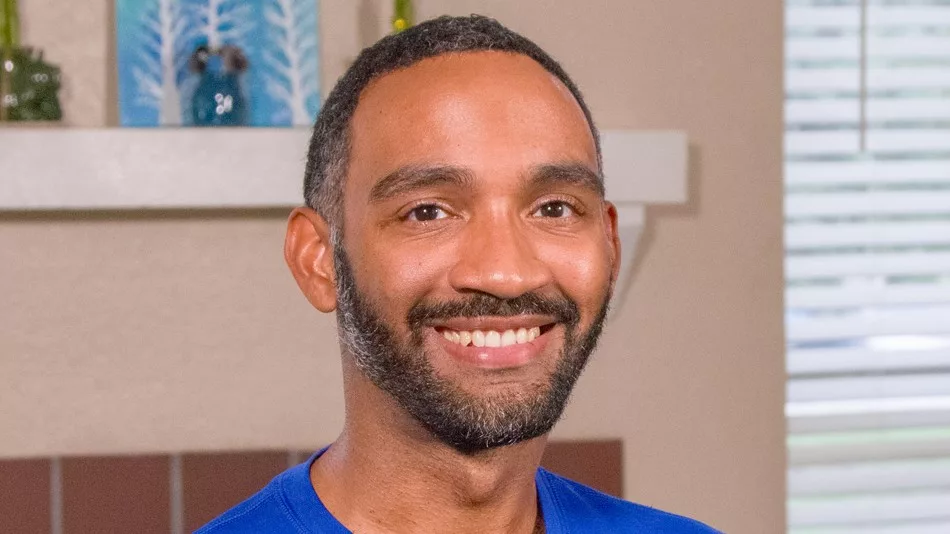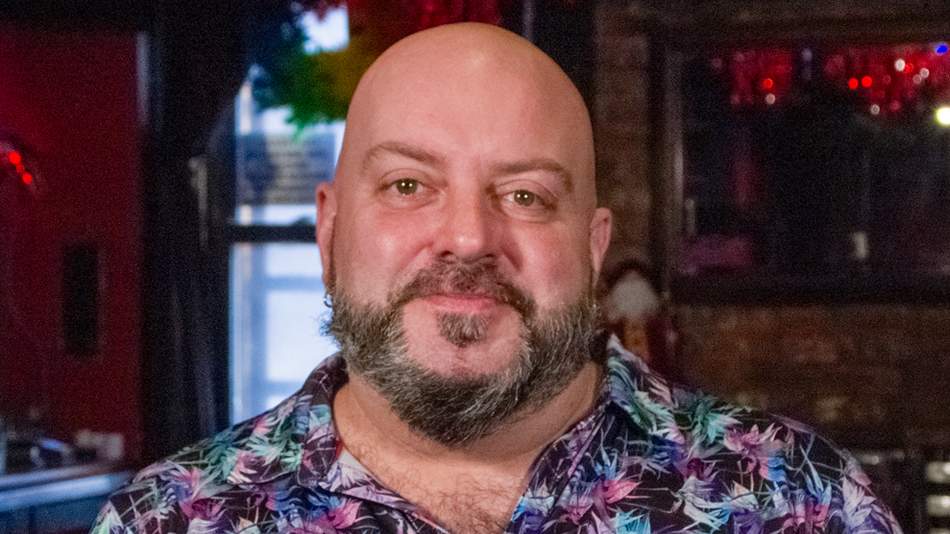So my name is Coleman Goode. I’m from Hallettsville, Texas.
When I was 25 years old, I checked myself into a mental hospital because I tried to commit suicide. I, also, at that time had left my boyfriend who was living with HIV. I was on meth – crystal meth. I’ve been doing that for, on and off for a couple – 2 years. So my life was on not at its highest point. And I found myself one day in this lime green two-toned room with a nurse coming into the room and sitting down in front of me. It was March 21, 2005 – 2006 and she told me that I was HIV positive.
I remember staring at her and she – so I think she was waiting for me to have a reaction but I didn’t. So she responded, “Well, you don’t seem to be too surprised.”
And I’ll never forget this – I said, “Well if you’ve been doing things I’ve been doing, you wouldn’t be surprised.” I remember leaving the room and I remember just feeling like the entire world is fell down on me, like what am I gonna do? I’m 25. I’m now HIV+, I’m probably going to die. You know, these are the thoughts that went through my mind because I didn’t know anyone with HIV, I didn’t know what that looked like. I just didn’t know what my life looked like after that. So I broke down.
I’m in this mental hospital with people I don’t even know, but they came up to me, they’re hugging me, and they were being supportive and they didn’t even – like, they didn’t know me. Like, they were some people I just met maybe the day before, but it was such support that I didn’t understand it or didn’t really expect it. I felt like the nurses have to be supportive but these were, like, people – like actual patients. And I jokingly said my time in the hospital was like “Girl, Interrrupted.” I was like Winona Ryder and we were just these cast of characters of like, you know, the Island of Misfit Toys. You know, and we were cast away and yet there was this moment of real connection and it felt very genuine.
I mean actually, I decided to call my mom. And so I remember picking up the phone and calling her and just letting her know where I was, because at that point, my mom and I weren’t really that close. So I don’t think I had spoken to her in – probably in months. And so I called her and got her on the phone and told her that I was HIV+ and that I was, you know, suffering from depression and I was in a mental hospital because I tried to kill myself. And she was like, “Okay…” She later told me that when she hung up the phone, she, like, broke down sort of crying. And I knew that was going to hurt her but it was the first time I was ever actually able to be really honest with her in a very long time and I think that later played very greatly into our relationship getting a lot better.
You know, later when I was released from the hospital after being there for three months, getting myself care, you know, finding out that I was suffering from depression, I had a great therapist that was like this lesbian and she was telling me about all these great things to do in the community and just kind of helping me, I guess, feel good about myself, and telling me that there is support for me.
The whole experience in the hospital and I – it sounds really crazy, was so beautiful because I just felt very supported for the first time and very, very supported by people that didn’t know me and didn’t have – I feel like they didn’t have – there was nothing they could get out of supporting me and loving me, but it was very beautiful for me.
The hospital set up so I can go to another – an HIV+ sober house facility. So I got moved there and from there I decided to go to treatment. I decided that maybe treatment with a better option for me. And so I got to be in this 90-day program with people living with HIV, and I got to be newly diagnosed and work through what that meant and work through what it was – what my life is gonna be like.
Through this same program, through this same agency, I was able to move into another halfway house which is for people living with HIV, all the way up through a three-quarter home and stayed two years. And another HIV service – agency helped me get a job. I did job training. And they found me an apartment. You know, I was getting my life together. I was making friends and developing relationships and finding my first community.
I would love to say that I stayed sober for all the time since then and that things were magically better but it wasn’t, I haven’t – I’ve struggled with my sobriety. I’ve struggled with my mental illness. Luckily because of the support I have, it never got to the point where it was in 2005 where I was alone and felt desperate enough to take my own life.
If you had told me in 2005 when I was – I had been diagnosed at 25 as being HIV+ March 21st, that I would be where I am today… that I would be an advocate, that I get to go into the community and teach and teach about advocacy and go to Washington DC and go on the Hill and fight against the Trump administration, it’s – I would have laughed. I just would have laughed because that’s not what I thought my life would be.
Slowly and surely it’s gotten better. And I’ve developed this really good core of people around me and I found my place in the gay community. The value of surrounding myself with good people, positive people is just – I can’t really put a price on it. It’s just really important thing for people to understand that there is a place for them. They might just have to look for it or make their own place, but there is a place for people and I think there’s – you don’t have to be alone if you don’t want to be.








Share